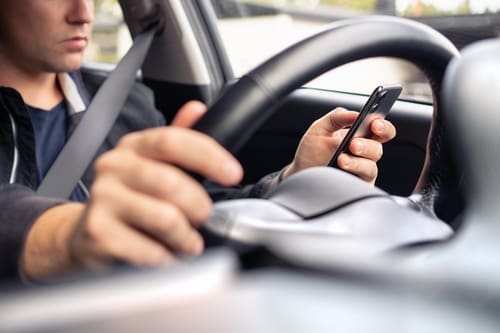The Hidden Insurance Gaps That Can Devastate Your Rideshare Claim
Picture this: You’re in the back of an Uber heading down Interstate 45 when suddenly your driver slams into the vehicle ahead. Your injuries are serious, medical bills are piling up, and you assume the rideshare company’s insurance will cover everything. But then you discover a harsh reality – one simple mistake in how you handle your claim could leave you with thousands in unpaid expenses. Understanding the complex web of rideshare insurance requirements in Texas can mean the difference between fair compensation and financial disaster.
If you’ve been injured in a rideshare accident, you’re likely overwhelmed by medical appointments, insurance paperwork, and mounting concerns about your financial future. The rideshare insurance system in Texas operates differently than traditional auto accidents, with multiple layers of coverage that can confuse even experienced drivers. Making the wrong move at any stage of your claim process could severely limit your ability to recover the compensation you deserve for your injuries, lost wages, and pain and suffering.
💡 Pro Tip: Document everything immediately after a rideshare accident – take photos of injuries, vehicle damage, and screenshot your ride details from the app before they disappear. This evidence becomes crucial when multiple insurance companies start pointing fingers.
If you’ve found yourself tangled in the complicated web of rideshare insurance claims, don’t navigate it alone. Reach out to Payne Law Firm to ensure you’re protected and receive all the compensation you deserve. Give us a call today at 713-999-4801 or contact us through our website to start your journey toward resolution.

Texas Rideshare Insurance Requirements That Protect Your Rights
Under Texas law, transportation network company drivers must maintain $1 million in liability coverage for death, bodily injury, and property damage for each incident during prearranged rides. This substantial coverage requirement exists specifically to protect passengers like you. However, many injured passengers don’t realize that accessing this coverage requires understanding the specific circumstances of when and how the accident occurred. A rideshare accident attorney in Houston can help navigate these requirements to ensure you’re pursuing the correct insurance coverage.
The Texas Insurance Code Chapter 1954 establishes clear rules that work in your favor. If a driver’s insurance policy has lapsed or doesn’t provide required coverage, the transportation network company must provide coverage beginning with the first dollar of a claim. This means Uber or Lyft cannot leave you stranded without coverage due to their driver’s insurance problems. Additionally, coverage under the rideshare company’s policy is not contingent on the driver’s personal automobile insurer initially denying a claim – a protection that speeds up the claims process considerably.
Your rights extend beyond just the accident itself. Texas Insurance Code Chapter 1954 – TNC Driver Insurance Requirements mandates that rideshare companies must provide clear information about insurance coverage on their websites. They’re also required to tell drivers about the insurance policy details, including types of coverage and policy limits. This transparency requirement means you have the right to know exactly what insurance protections were in place at the time of your accident.
💡 Pro Tip: Always ask your insurance agent or company if your personal auto policy will cover you when you’re a passenger in a rideshare vehicle – this additional layer of protection could prove valuable if complications arise with the rideshare company’s coverage.
Critical Timeline Mistakes That Sink Rideshare Claims
The timeline of your rideshare accident claim begins the moment impact occurs, and every decision you make can either strengthen or weaken your case. Understanding the proper sequence of events and avoiding common timing errors can dramatically improve your settlement outcome. Since the rideshare insurance laws became effective on January 1, 2016, thousands of passengers have learned these lessons the hard way.
Immediate Post-Accident (0-24 hours): Report the accident through the rideshare app immediately – waiting even a few hours can raise questions about the severity of your injuries
First Week: Seek comprehensive medical evaluation even if you feel “fine” – soft tissue injuries and concussions often don’t manifest symptoms for days
First Month: Gather all documentation including the driver’s proof of insurance that they’re required to carry when using a vehicle in connection with the transportation network company’s digital network
2-6 Months: Continue all prescribed medical treatment without gaps – insurance adjusters specifically look for treatment interruptions to minimize claim values
6-12 Months: Resist early settlement offers that don’t account for future medical needs or ongoing pain and suffering
Within 2 Years: File a lawsuit if necessary – Texas statute of limitations for personal injury is two years from the accident date
💡 Pro Tip: Create a dedicated email folder for all rideshare accident communications and set up a simple spreadsheet to track every medical appointment, missed work day, and out-of-pocket expense – this organization pays dividends during settlement negotiations.
Strategic Solutions to Maximize Your Rideshare Settlement
Avoiding costly mistakes in your rideshare settlement requires understanding both the insurance landscape and the tactics used to minimize payouts. When dealing with multiple insurance layers – the driver’s personal policy, the rideshare company’s coverage, and potentially your own insurance – having a rideshare accident attorney in Houston becomes essential for maximizing your recovery. Payne Law has extensive experience untangling these complex coverage questions and ensuring clients receive every dollar they deserve under Texas law.
The most successful rideshare accident claims follow a strategic approach that anticipates insurance company tactics. First, never give recorded statements to any insurance adjuster without legal representation – these statements are designed to lock you into positions that limit your claim. Second, understand that some rideshare companies also cover damage to the driver’s car, which means the insurance adjuster may be juggling multiple claims from the same accident and looking for ways to reduce overall payouts. Third, recognize that quick settlement offers rarely account for the full extent of your damages, especially future medical needs or diminished quality of life.
Building a strong rideshare accident claim means documenting not just your immediate injuries, but also the broader impact on your life. Lost wages, cancelled plans, inability to exercise or enjoy hobbies, and strain on family relationships all constitute compensable damages under Texas law. By working with experienced legal counsel who understands rideshare accident complexities, you avoid the mistake of undervaluing your claim and accepting less than you need to fully recover.
💡 Pro Tip: Request a copy of the rideshare company’s insurance policy details that they’re required to disclose – reviewing actual policy language with your attorney can reveal additional coverage options that claims adjusters won’t volunteer.
Insurance Coverage Gaps That Destroy Settlement Values
The most expensive mistakes in rideshare settlements often stem from misunderstanding when different insurance policies apply. Texas rideshare regulations create distinct coverage periods with dramatically different insurance requirements. During the time a driver has the app on but hasn’t accepted a ride, coverage levels drop significantly compared to the $1 million required during active rides. Passengers who don’t understand these distinctions often pursue the wrong insurance company or accept settlements based on incorrect coverage assumptions.
The Period Problem: When Coverage Changes Everything
Your rideshare accident attorney in Houston must determine exactly when your accident occurred within the ride cycle. Period 1 covers when the driver is available but not matched with a passenger. Period 2 begins when the driver accepts your ride request and travels to pick you up. Period 3 – with the highest coverage requirements – starts when you enter the vehicle and ends when you exit at your destination. Accidents occurring during pickup approach or just after drop-off create coverage disputes that inexperienced claimants often lose.
Insurance companies exploit confusion about these coverage periods to deny or minimize claims. For instance, if your accident happens moments after the driver marks you as “dropped off” in the app, the insurance company might argue the $1 million coverage no longer applies. Similarly, accidents during the pickup phase might trigger disputes about whether full commercial coverage was active. These technical arguments can cost injured passengers hundreds of thousands in lost compensation.
💡 Pro Tip: Screenshot your ride status in the app immediately after any accident – this timestamp evidence becomes crucial for establishing which insurance coverage period applies to your claim.
Settlement Negotiation Mistakes That Leave Money on the Table
The negotiation phase of your rideshare settlement presents numerous opportunities for costly errors. Many passengers make the mistake of negotiating directly with insurance adjusters who are trained to minimize payouts and use your words against you. Understanding common adjuster tactics and having professional representation levels the playing field. Remember, insurance companies handling rideshare claims process thousands of cases – they know every strategy to reduce settlement values, while this might be your first and only accident claim.
The Medical Treatment Trap
One critical mistake involves gaps in medical treatment that insurance companies exploit ruthlessly. If you skip appointments, delay recommended procedures, or stop treatment against medical advice, adjusters will argue you weren’t really injured. They particularly scrutinize rideshare injury claim Houston cases for any sign that victims are exaggerating their injuries. Even legitimate reasons for missing treatment – like work obligations or childcare issues – get twisted into evidence that your injuries aren’t severe. Maintaining consistent medical care and documenting any unavoidable interruptions protects your claim’s value.
Another negotiation pitfall involves accepting partial payments or signing limited releases without understanding the consequences. Some insurance companies offer quick payments for “property damage only” or “emergency medical expenses” that include hidden language preventing future claims. Once you sign these documents, recovering additional compensation becomes nearly impossible, even if your injuries worsen or require surgery months later.
💡 Pro Tip: Never sign any insurance documents labeled as “release,” “settlement,” or “agreement” without legal review – these forms often contain broad language that eliminates your right to pursue full compensation later.
Digital Evidence Errors That Weaken Your Case
In today’s digital age, rideshare accidents create unique electronic evidence that can make or break your settlement. However, many passengers make critical mistakes in preserving and presenting this digital proof. The rideshare app itself contains valuable data about your trip, including route information, driver details, and exact timing – but this information can disappear or become inaccessible if not properly preserved. A rideshare accident attorney in Houston understands how to legally preserve this electronic evidence before it vanishes.
Social Media: Your Worst Enemy During Claims
Perhaps no mistake costs rideshare accident victims more money than careless social media use during their claim. Insurance companies now employ teams of investigators who scour Facebook, Instagram, TikTok, and other platforms for any post that contradicts your injury claims. That photo of you at a family barbecue, even if you were in pain the entire time, becomes “evidence” that you’re not really hurt. Check-ins at the gym, vacation photos, or even positive comments about “feeling better” get twisted to minimize your settlement value.
The solution isn’t just avoiding posts about your accident or injuries – insurance investigators look at your entire online presence. They search for pre-accident posts about prior injuries, comments about other insurance claims, or any content suggesting you might exaggerate or embellish. The safest approach during any ride-sharing insurance questions period is to completely pause social media activity or set all accounts to maximum privacy settings.
💡 Pro Tip: Ask friends and family not to tag you in photos or mention your accident on their social media – insurance companies investigate your entire social network, not just your own accounts.
Frequently Asked Questions
Understanding Your Rights After a Rideshare Accident
Texas rideshare accident victims often have similar concerns about their rights, the claims process, and potential compensation. These questions reflect common uncertainties that, if not properly addressed, can lead to expensive mistakes in handling your claim.
💡 Pro Tip: Write down all your questions before speaking with any insurance company – having a prepared list prevents you from forgetting important concerns during stressful phone calls.
Next Steps in Your Recovery Journey
Moving forward after a rideshare accident requires balancing immediate needs with long-term legal strategy. Understanding the proper sequence of actions protects both your health and your legal rights throughout the settlement process.
💡 Pro Tip: Create a dedicated notebook or digital file for your rideshare accident claim – organizing information from day one makes the entire process smoother and strengthens your negotiating position.
1. What happens if the rideshare driver’s personal insurance denies coverage for my accident?
Under Texas law, if a driver’s insurance policy has lapsed or doesn’t provide required coverage, the transportation network company must provide coverage beginning with the first dollar of a claim. Additionally, the rideshare company’s coverage is not contingent on the driver’s personal insurer initially denying a claim, meaning you should have access to the $1 million liability coverage required during active rides regardless of the driver’s personal insurance situation.
2. Can I still pursue a Houston rideshare accident settlement if I didn’t call police to the scene?
Yes, you can still pursue compensation even without a police report, though it may complicate your claim. Document everything you can remember about the accident, gather witness information if possible, and report the incident through the rideshare app immediately. Medical records, app data, and witness statements can help establish what happened. However, always call police for any accident involving injuries or significant property damage in the future.
3. How long do I have to file a rideshare accident lawsuit in Texas?
Texas law provides a two-year statute of limitations for personal injury claims, including rideshare accidents. This means you must file a lawsuit within two years from the date of your accident. However, insurance claims should be initiated much sooner, ideally within days of the accident. Waiting too long to begin the claims process can result in lost evidence, faded memories, and skepticism from insurance adjusters about your injuries.
4. Should I accept the rideshare company’s initial settlement offer?
Initial settlement offers rarely reflect the true value of your claim, especially if you haven’t finished medical treatment or fully understand your injuries’ long-term impact. These early offers often fail to account for future medical needs, ongoing pain and suffering, or the full extent of lost wages. Before accepting any settlement, ensure you understand all your damages and consult with an attorney experienced in Texas rideshare accident compensation to evaluate whether the offer is fair.
5. What if I was partially at fault for the rideshare accident?
Texas follows a modified comparative negligence rule, meaning you can still recover damages as long as you’re less than 51% at fault for the accident. However, your compensation will be reduced by your percentage of fault. For example, if you’re found 20% at fault for not wearing a seatbelt, your settlement would be reduced by 20%. Insurance companies often try to assign more blame to passengers than warranted, making legal representation crucial for protecting your interests.
Work with a Trusted Rideshare Accidents Lawyer
When rideshare accident injuries disrupt your life, choosing the right legal representation can mean the difference between struggling with medical bills and receiving fair compensation for all your damages. The complexity of rideshare insurance laws in Texas, combined with aggressive insurance company tactics, makes professional legal guidance essential. Payne Law brings years of experience handling rideshare accident claims throughout the Houston area, understanding both the legal requirements and practical strategies needed to maximize your settlement.
Don’t let simple mistakes cost you thousands in lost compensation. From preserving digital evidence to navigating multiple insurance policies, every decision in your rideshare accident claim carries consequences. Contact Payne Law today to discuss your case and learn how we can protect your rights while you focus on healing. Our team knows the ins and outs of Texas rideshare laws and has a proven track record of securing meaningful settlements for injured passengers.
Don’t let the maze of rideshare insurance claims leave you stranded. Reach out to Payne Law Firm for clear guidance and to secure the compensation you deserve. Call us at 713-999-4801 or contact us online today to begin your journey to resolution.


